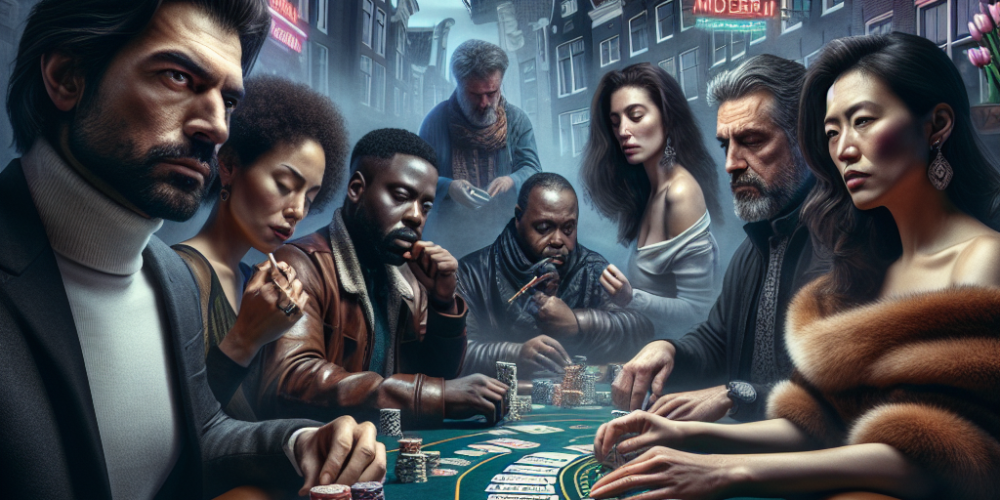Sydney I. shares her vivid experiences playing Texas Hold’em at a bustling Amsterdam poker event.
Traveling to Amsterdam always adds an exciting chapter to my poker diary, and this trip was no exception. The city, with its iconic canals and vibrant nightlife, was hosting its annual poker festival. With players buzzing from all around the globe, the atmosphere was electric, and I knew this was the perfect setting to up my game and test my skills against a diverse field.
I made my way to the heart of the city where the festival was taking place. The main event was a Texas Hold’em tournament, which is right up my alley. Initial buy-ins were steep, the stakes high, and the competitive energy palpable from the moment you stepped into the room. After registering, I found myself seated at a table with eight others. As I surveyed my opponents, trying to get a read on them, I recognized a couple of familiar faces—a pro I had encountered in Vegas last year and a local Dutch player known for her aggressive play.
The early stages of the game were cautious. I played a tight game, folding more often than I would have liked, but it’s essential to feel out the dynamics before taking big risks. My moment came in the third hour when I was dealt a pair of kings. The pro raised, I re-raised, and we were heads-up with significant chips in the pot. The flop showed a king, ten, and a three—giving me a set. Trying to mask my excitement was tougher than expected, but I managed a calm check. The pro took the bait, betting big, assuming he had the upper hand. I called. The turn was a harmless two. This time, I decided to raise, pushing enough chips to put him under pressure. He called. The river was another ten, giving me a full house. I went all-in, and after a tense pause, he folded, leaving me with a hefty pot.
Buoyed by this victory, my confidence surged. The buzz from the good hand carried me forward, and I became more involved, picking up smaller pots and staying active. However, as always in poker, highs are often followed by lows. A couple of hours later, I faced a bad beat that almost knocked the wind out of me. Holding an ace-high flush, I was confident, perhaps too confident. I pushed all-in against a player who had been quiet most of the night, only for him to reveal a full house, crushing my flush and halving my stack.
This loss was a gut punch, and I took a short break to regroup and refocus. Walking away from the table, I grabbed a coffee, letting the caffeine steady my shaky hands and the bustling, dimly lit ambiance of the casino calm my mind. I reminded myself that poker isn’t just about the cards you’re dealt but how you play them—psychologically and strategically.
Returning to the table, I adopted a more conservative approach, rebuilding my stack slowly and staying out of risky confrontations. As players began to dwindle, I found myself at the final table. The stakes were immense, not just in terms of chips but also the mental and emotional energy invested. Each hand felt like a battle. I managed to claw my way into the top five, a personal victory considering the rollercoaster of the day.
Though I didn’t win the tournament, the experience was invaluable. Reflecting on the day, the key takeaway for me wasn’t just about managing the cards but managing myself—my reactions, my emotions, and my strategies. Even in the face of a bad beat or a big win, the ability to stay level-headed and focused is what separates the good poker players from the truly great ones.
Amsterdam taught me more about resilience and the importance of bouncing back. As I left the casino, the cool night air felt like a fresh start. Whether at a poker table or in life, it’s all about playing the hand you’re dealt as best as you can, and sometimes, that’s enough to come out ahead.

















